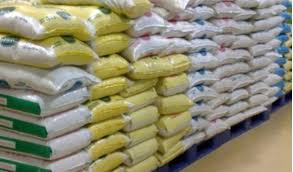By Mackie M. Jalloh
The Ministry of Trade and Industry in Sierra Leone has announced the official retail prices of rice across all district headquarters in the country. This development, published in a public notice dated January 21, 2025, comes as part of the government’s ongoing efforts to stabilize the price of rice, the country’s staple food, and ensure that it is accessible and affordable for all Sierra Leoneans.
This move follows a press release issued earlier on January 7, 2025, where the Ministry promised to disclose the nationwide rice prices after consultations with key stakeholders, including the Ministry of Transport and Aviation, the Sierra Leone Police, and the Indigenous Transporters Association.
The public notice provides a detailed breakdown of the retail price of a 50-kilogram bag of parboiled rice in various districts. Prices range from SLL 830 in Western Urban and Western Rural districts to SLL 870 in Falaba district, reflecting slight regional variations.
District Price List:
- Bo: SLL 848
- Kenema: SLL 849
- Kono: SLL 849
- Makeni: SLL 846
- Kabala: SLL 851
- Port Loko: SLL 849
- Kailahun: SLL 853
- Mattru: SLL 860
- Kambia: SLL 853
- Karene (Kamakwei): SLL 860
- Pujehun: SLL 860
- Moyamba: SLL 850
- Falaba: SLL 870
- Tonkolili: SLL 848
- Western Urban and Rural: SLL 830
The notice emphasizes that the prices include all associated costs of the commodity, from wholesale stores to retail outlets, ensuring uniformity and transparency in the pricing system.
The Ministry of Trade and Industry expressed its gratitude to the Sierra Leone Police and the Indigenous Transporters Association for their cooperation and commitment to ensuring that the government’s goal of price stability is achieved. By collaborating with these entities, the Ministry aims to eliminate bottlenecks in the distribution chain, which have previously contributed to artificial price hikes and scarcity.
This coordinated effort is designed to address challenges such as transportation costs, hoarding, and unscrupulous practices by middlemen. The inclusion of transport associations in the price-setting process reflects the government’s understanding of logistical complexities and its commitment to finding sustainable solutions.
The establishment of fixed prices is expected to bring significant relief to consumers who have faced fluctuating and often exorbitant rice prices in recent months. Retailers are also urged to comply with the set prices, as they reflect the total cost of transporting and distributing rice to retail outlets nationwide.
For many Sierra Leoneans, rice is not just a staple but an essential part of daily life. As such, price stability is critical to ensuring food security and maintaining public confidence in the government’s ability to address economic challenges.
However, the success of this initiative will depend on effective monitoring and enforcement mechanisms. Retailers and transporters who deviate from the prescribed prices could undermine the government’s efforts, potentially leading to further economic hardship for consumers.
The announcement has been met with mixed reactions. While many citizens have welcomed the government’s intervention, some remain skeptical about the practical implementation of the fixed prices. Past experiences have shown that price controls can be difficult to enforce, especially in rural areas where monitoring is limited.
The Ministry has called on citizens to report any violations of the fixed prices to ensure accountability. By involving the public, the government aims to foster a sense of collective responsibility in addressing the challenges of food security.
As part of its broader strategy, the government may need to implement additional measures to ensure long-term stability in the rice market. These could include increasing local rice production, improving storage facilities, and reducing reliance on imports.
For now, the Ministry of Trade and Industry has assured Sierra Leoneans that it remains committed to making rice available at reasonable prices. The success of this initiative will depend on the continued collaboration between government agencies, transporters, retailers, and the public.













